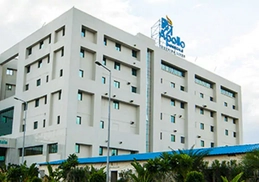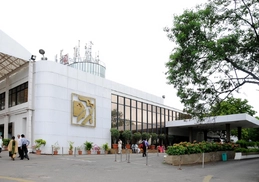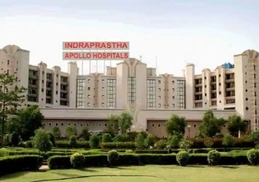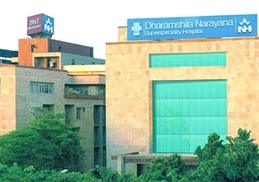
+91 8095511877

+91 8095511877
Colorectal cancers affect the colon or the rectum.
The colon or the large intestine and the rectum are the parts of your digestive system. These help to absorb water and salts from the food you take in and for removing the waste products after digestion.
The rectum is, in fact, the last part of the large intestine or colon. If your cancer is limited to the colon, you have colon cancer. If it affects only the rectum, you have rectal cancer. The symptoms are almost the same for both, but the treatments will vary.
Another name for colorectal cancer is bowel cancer. It is the second most common cancer in women and the third common one in men. These cancers are second in terms of deaths due to cancers.
The exact cause of these cancers is not very clear. Being overweight, smoking, unhealthy diet habits, etc. are some of the risk factors. If you have growths called polyps in the intestine, your risk is more.
Colorectal cancers have very few symptoms in its early stages. Most of the symptoms occur in the later stages. Blood in stools, diarrhea or constipation, changes in bowel habits, etc., are some of them.
Surgery is the most common treatment option for colorectal cancers. If the tumor is large or has spread to other parts of the body, you will need treatments like chemotherapy, radiation as well.
The exact cause of colorectal cancers is not clear.
A healthy cell knows how they should divide or for how long they should live. It is the genes present in the cells that store this knowledge. Any defects or changes in the structure of genes can alter this information. If this happens, the cells may divide at a faster rate and live for longer than usual. The result is cancer. But what is not clear is the reason for the changes in the genes.
But a few things can increase the risk of getting colorectal cancers.
Risk factors are things that increase your chances of getting cancer. You can avoid some of these while some others are not under your control.
Some of the common risk factors that you can change are
Some risk factors beyond your control are
Interestingly, you may get the disease without any of these risk factors. Also, you may not get it even if you belong to the high-risk group.
You will have few symptoms in the early stages of the disease. As the tumor grows in size, you will start having symptoms
Some of these are
If you have any of these symptoms, and the doctor suspects cancer, you will have a few tests to confirm or rule it out.
Colonoscopy -It helps the doctor see the inside of the colon or rectum a screen. For, this the doctor will insert a thin and flexible tube through your anus towards the colon. This tube will have a camera at the tip that transmits the images to the screen. If there is cancer, the doctor will know it from the images. It is also possible to do small surgeries during this. For this, the surgeon will push special surgical tips through the tube to the site of cancer.
Biopsy- If the doctor suspects cancer, he or she will take a tissue sample for looking under a microscope for cancer cells. It also helps to know about the type and stage of cancer.
MRI and CT scans- These imaging tests will show the spread of cancer to other areas of the body.
PET scans- You will have it if cancer has spread too far in the body. The test uses a radioactive type of sugar to highlight the areas with cancer and then take images of these areas
Your colorectal cancer treatment will depend on the stage of the disease. Also, the treatment will vary according to the location of cancer as well. You will have surgery as a first step to remove cancer if it has not spread too much.
But in situations where there is a big tumor in the colon or rectum, you will need other treatments like radiation therapy or chemotherapy. The same applies to cancers that have spread to other areas of the body as well.
Your general health also influences the choice of treatments. Most of the treatments for cancers have some side effects. So you must be healthy enough to withstand these.
During surgery, the surgeon will remove the tumor along with a margin of healthy tissue at the borders. It is to make sure that no more cancer remains after treatment.
There are different types of surgeries for colorectal cancers. Some of the common ones are
Chemotherapy- It uses medicines to treat cancers. You will have it as pills or as injections to your veins. You will have the treatment for a few days at a stretch called a 'cycle' with a period of rest in between. It is an ideal treatment for large cancers, where surgery is not an option.
Biologic Therapy - These are directed therapy for certain types of colorectal cancers expressing certain molecular markers ( mutation). These therapies are safer and less toxic and enhance the effect of chemotherapy.
Immunotherapy - Drugs which act of immune system( checkpoint inhibitors) are sometimes used in metastatic cancers, if examination of tumor tissue confirms that this type of therapy will work
Radiation therapy - It uses high energy x-rays or other particles to destroy cancers. The x-rays will be from an external source. The x-rays or particle beams will target the tumor with precision to destroy it. You may have this before surgery to shrink the tumor or after it to destroy any remnants of cancer. In advanced cancers, it helps to provide relief from the symptoms.
The vital factor that affects the outcome of treatments is the stage of the disease. Having treatments in the early will help to improve the success and to prevent the spread of the disease


This article has been reviewed for medical correctness and relevance by
Dr Niti Raizada
Dr. Niti Raizada is a senior Medical Oncologist with over fifteen years of experience in the field. Dr Niti has special interests in the areas of Thoracic, Gastrointestinal, Breast, Gynaecological Oncology, and Bone Marrow Transplants. She did her MBBS at Gandhi Medical College, Bhopal; MD-General Medicine at G R Medical College, Gwalior, DNB-General Medicine from National Board Of Examination,DM from Adyar Cancer Institute Chennai and Fellowship in Hematology from Hammersmith Hospital and Imperial College,London. She is a member of American Society of Clinical Oncology,USA; Royal College of Physicians,Edinburgh,UK; Member of Pharmacy Committee,Member of DNB teaching program in Medical Oncology and European Society of Medical Oncology (ESMO).

Aida Ismail
Australia

Apollo Chennai

Apollo Health City

Apollo Indraprastha

BLK Hospital

Dharamshila Narayana

Fortis Bangalore
Frequently Asked Questions
Is colorectal cancer curable?
How to detect colorectal cancer early?
Will colorectal cancer come back after treatment?
Can I have a normal life after colorectal cancer treatment?
What is the cost of colorectal cancer treatment in India?